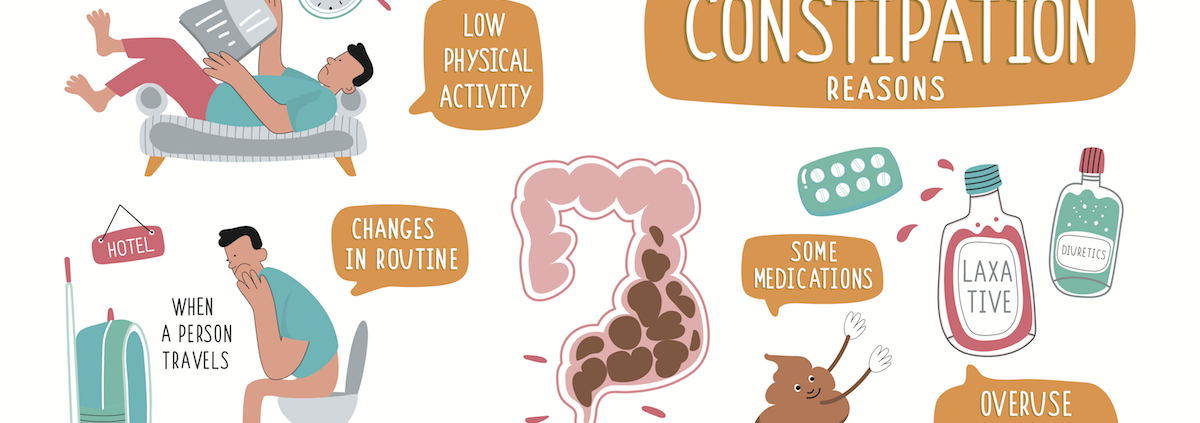Constipation – normal but certainly not optimal
The main symptoms of constipation include having to strain to defaecate, the feeling of incomplete bowel evacuation, the passing of hard and lumpy output that is either larger or smaller than it should be and/or having less than 3 outputs per week. Other symptoms that may also be present include bloating, gas, nausea, migraines, headaches, lower back pain, anxiety and fatigue.
The reported prevalence rates of constipation in the UK vary widely between studies, with figures ranging from 4% to 20%. Constipation affects twice as many women as men and older people are five times more likely than younger adults to suffer from constipation (NICE data). Whilst being constipated maybe considered as ‘normal’ it is far from ‘optimal’, as it clearly reflects underlying functional system imbalances in the body.
There are a multitude of potential reasons as to why constipation occurs. These include poor diet, dehydration, lack of appropriate fiber (although increasing fiber with chronic functional idiopathic constipation – long term constipation with no known cause – can in fact make things worse), gluten related disorders and dairy sensitivities, other unidentified food sensitivities (will be unique to the individual), imbalances in the bacterial species of the gut (dysbiosis), small intestinal bacterial overgrowth (SIBO) – typically the production of too much methane, medication use – read the potential side effects of any medications that you are taking and discuss with your GP if required – opioid induced constipation is extremely common, stress, sub optimal magnesium status, thyroid dysfunction, hormonal imbalances, lack of exercise, food poisoning, accidents (damage to the vagus nerve) and even ‘long COVID’.
Often, simply adjusting diet (the general advice is to try increasing fiber), drinking more water and increased levels of exercise will improve/resolve the situation. If however these basic adjustments do not deliver the required benefits, then it is important to engage with your GP to ensure that there are no other significant underlying conditions (in rare cases chronic constipation is correlated with an increased risk of developing conditions such as Parkinson’s disease, multiple sclerosis and even bowel cancer). Please however note that relying long-term on the use of laxatives to achieve the desired output type and frequency, is not addressing ‘why’ you are constipated. By working with a suitably qualified practitioner and thoroughly evaluating the myriad of potential reasons as to why constipation is happening, should lead to answers and an effective solution.


 RT
RT 

Leave a Reply
Want to join the discussion?Feel free to contribute!